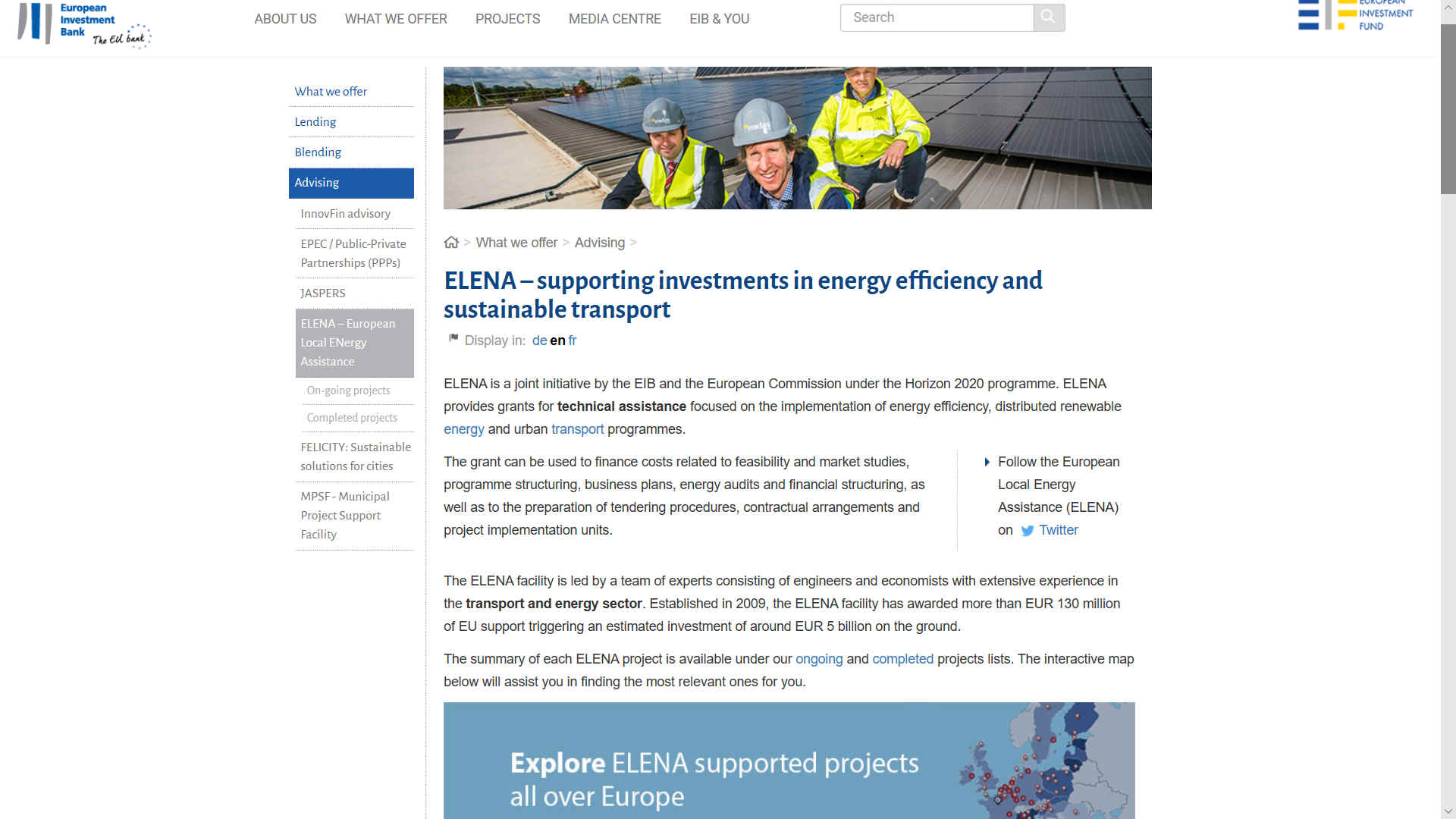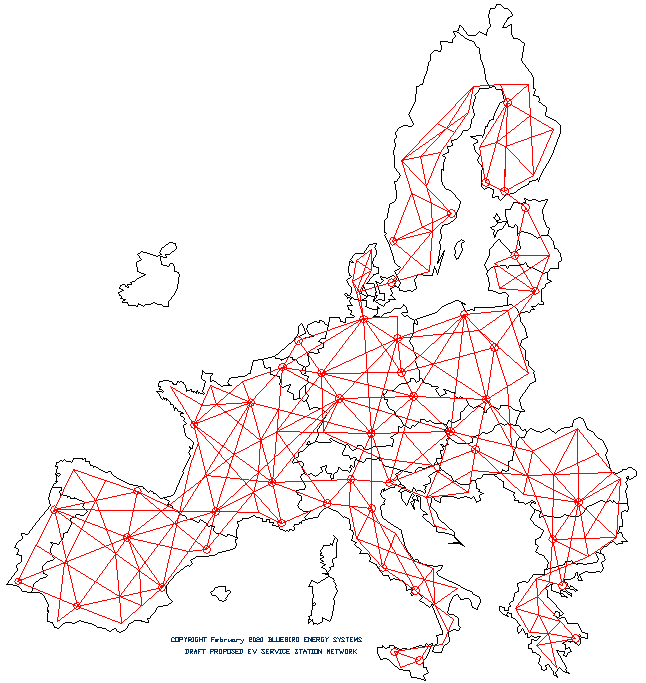|
EIB EUROPEAN INVESTMENT BANK
Please use our A-Z INDEX to navigate this site where page links may lead to other sites
|
ABOUT THE EIB
ELENA is a joint initiative by the EIB and the
European Commission under the Horizon 2020 programme. ELENA provides grants for technical assistance focused on the implementation of energy efficiency, distributed renewable
energy and urban
transport
programmes.
WHAT KIND OF PROJECTS DOES ELENA SUPPORT?
The annual grant budget is currently between EUR 40 and 50 million. Projects are evaluated and grants are allocated on a first-come-first-served basis.
ELENA may co-finance the preparation of investment programmes in the following fields:
Energy efficiency and building integrated renewable energy
- public and private buildings (including social housing), commercial and logistic properties and sites, and street and traffic lighting to support increased energy efficiency
- integration of renewable energy sources (RES) into the built environment – e.g. solar photovoltaic (PV) on roof tops, solar thermal collectors and biomass
- investments into renovating, extending or building new district heating/cooling networks, including networks based on combined heat and power (CHP), decentralised CHP systems
-
local infrastructure including smart grids, information and communication technology
CONVENTIONAL CHARGING POINTS - Would need to be installed at the rate of 288,462 parking spaces per week Europe wide to cater for 150 million vehicles in daily use within 10 years, or 144,230 per week within 20 years. We do not consider such a proposition to be realistic. A more practical approach for long term energy security for transport, is a network of SMARTNET FASTCHARGE service stations. The built in safeguards include load leveling and longer battery life, plus the ability to move to hydrogen fuel as and when the technology is developed, without needing to change vehicles or service stations. It is all planned for with SMARTNET.
URBAN TRANSPORT and MOBILITY
- investments to support the use and integration of innovative solutions for alternative fuels in urban mobility
- investments to introduce on a large-scale new, more energy-efficient transport and mobility measures in urban areas including passenger transport, freight transport, etc
RESIDENTIAL SECTOR
Accelerating the energy refurbishment of residential buildings is an important European priority and a key focus of the ELENA Facility. For that reason, in 2017 the European Commission allocated a substantial budget to support the deployment of the “Smart finance for Smart Buildings” initiative. The main objective of the ELENA budget increase is to help private individuals and homeowner associations prepare and implement energy renovations in private and public residential buildings. Possible activities to motivate and convince residential building owners are:
-
Assessing the energy performance of buildings and providing guidance for future works: the Facility could provide pre-assessment checks, support for energy performance certificates or energy audits.
- Whereas most of the project development services should be directed to households and homeowner associations (typically 80% or more of the total PDS costs), in duly justified cases, assistance could also be provided to other bodies, such as financial institutions (e.g. commercial banks) and public authorities to help them establish and deploy financial instruments and loan products targeting energy efficiency improvements in the residential sector.
ELENA – HOW IT WORKS
1. You are a public or private entity pursuing an energy efficiency, renewable energy or sustainable transport project and are looking for financing to support project development.
2. Contact ELENA providing a brief description of your entity and the planned investment programme. This should include information about the type of investment programme(s), the approach to implementation as well as the expected investment cost and time schedule of the programme. We will also need an overview of the main needs and scope of the technical assistance requested, justification of costs and an indication of the requested amount.
3. The ELENA team will review the information and assess if the project or programme meets the eligibility criteria. We will actively support you during the application process. For more information see our FAQ.
4.
If the assessment is positive, you will need to complete one of the two ELENA Application templates below, as well as the Declaration by the applicant. The European Commission will provide the final approval based on our assessment.
LINKS & REFERENCE
https://www.eib.org/en/products/advising/elena/index.htm#
Please use our A-Z INDEX to navigate this site
|
|
This website is provided on a free basis as a public information service. copyright © Climate Change Trust 2020. Solar Studios, BN271RF, United Kingdom.
|

